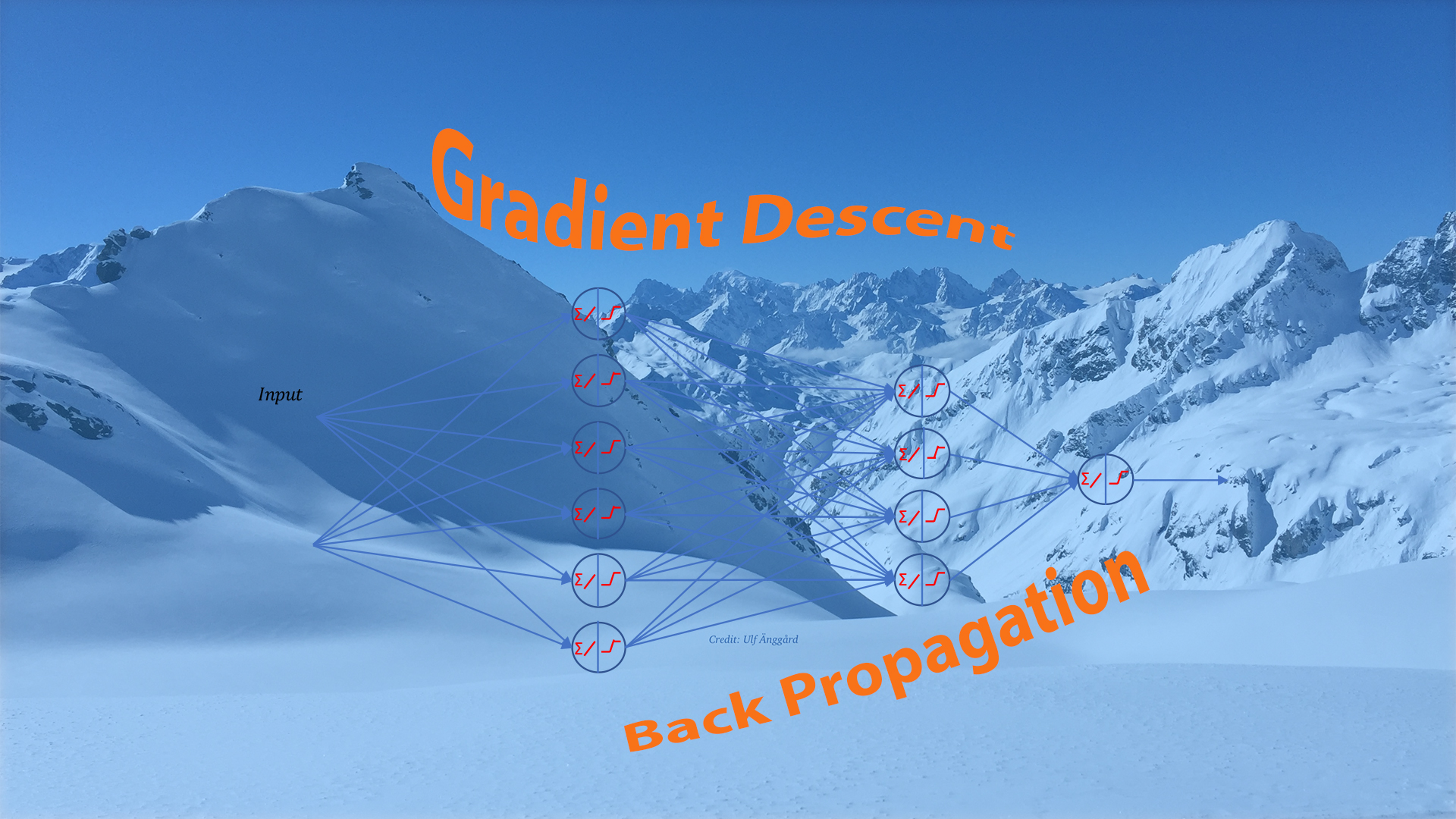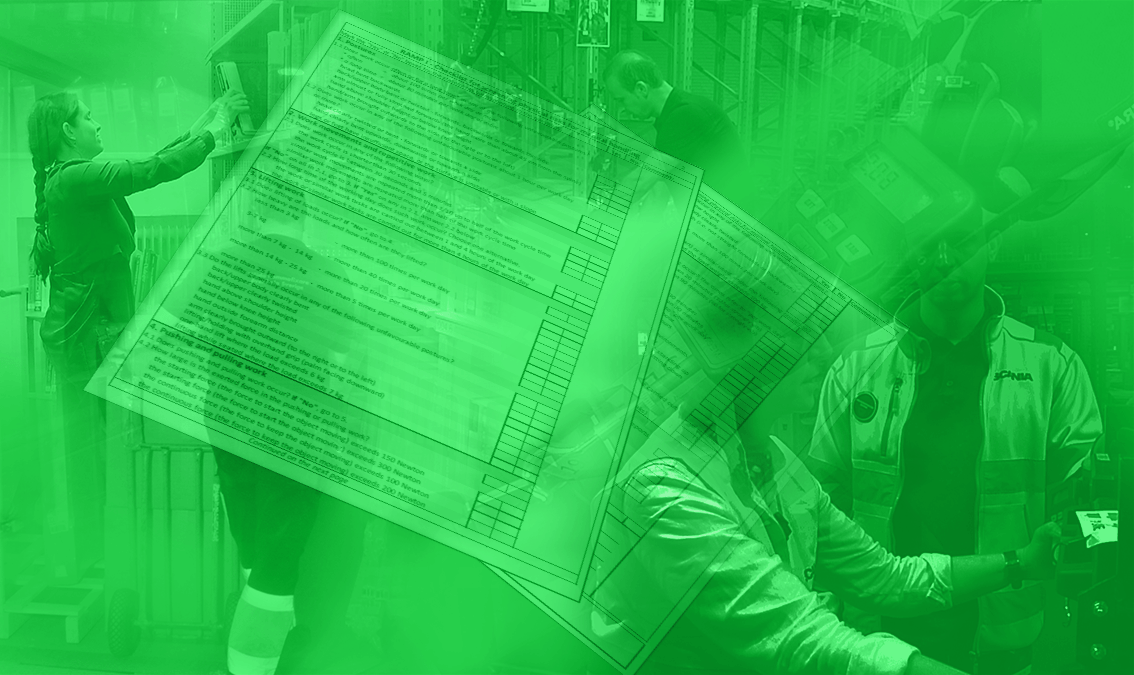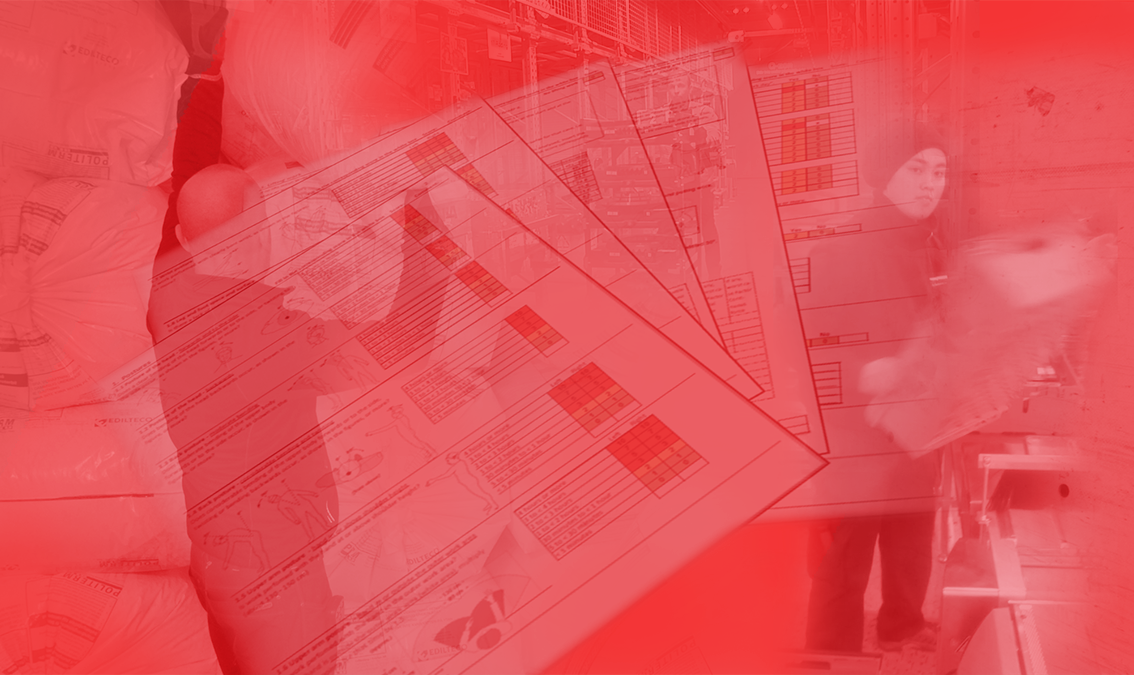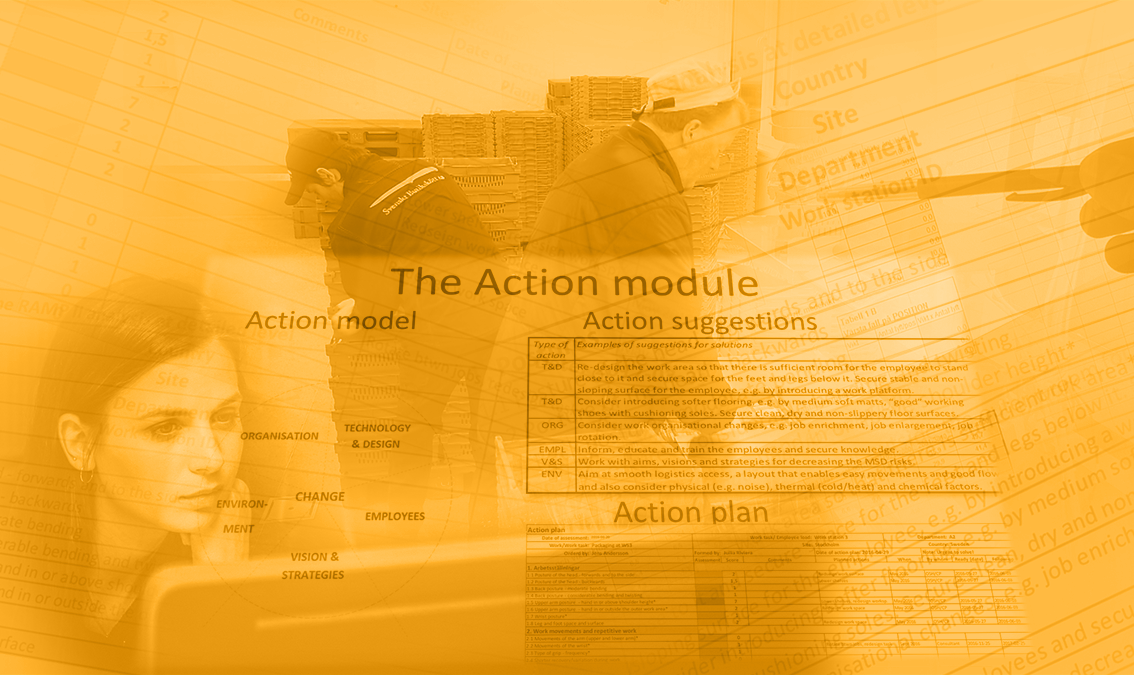Academic course categories
Explore our wide range of open and free courses on Torus, an innovative learning platform designed for flexible, self-paced study. Whether you want to discover new passions, strengthen your professional skills, or continue your lifelong learning journey, our diverse course catalog is here to support your goals. With no enrollment deadlines and courses available anytime, anywhere, you can learn at your own pace and shape your education to fit your schedule.
- Don't have an account?
- Climate MOOCs
- Enforcing Sustainable Development
- Introduction to Sustainable Development SD101
- Introduktion till Material i ett cirkulärt samhälle
- Digital transformation i en osäker värld
- Material i ett cirkulärt samhälle – Återvinning
- Material i ett cirkulärt samhälle – Metaller
- Hållbara mätetal med stöd av Green Performance Map
- Managing Climate Risks: The Basics of Climate Adaptation
- Introduction to batteries in the power grid
- Tillförlitlighetsanalys
- Miljöpsykologi och beteendedesign
- Mathematics and physics
- Digital Competence
- Kartläggning
- IT-Säkerhet
- Kommunikation och Samarbete
- Problemlösning i digitala miljöer
- Hitta och tolka digital information
- Computer Science & Machine Learning
- Health & Risk Management
- Course Schedule and Run Dates
- Assessment of Work-Related Injury Risks using RAMP I
- Risk Management of Work-Related Injuries using RAMP II
- Proficiency in using RAMP for Risk Management of Work-Related Injuries
- Kurskatalog
Don't have an account?
How to Register and Enroll in a Course
- Create an Account: Visit this link and follow the steps to sign up.
- Sign In: Log in with your credentials.
- Enroll: Browse the course catalog, find a course, and click 'Enroll'.
Climate MOOCs
Our online courses (MOOCs) are open and free for anyone interested to register for, to develop your career or simply learn something new. You don't need any prior knowledge or qualifications to take a course. Take the courses at your own pace - you can start and stop whenever you want. These courses do not give any higher education credits.
Enforcing Sustainable Development

Enforcing Sustainable Development
About This Course
What can we do to address the sustainability challenges we face? In this course, you will gain insight into how individuals,organisations and societies approach sustainability challenges in different ways. In various parts of the world different challenges are prioritized and thereby, various approaches and solutions are needed.
You will learn about the considerations needed to make decisions of how to prioritize sustainable development. You will also be introduced to different strategies for changing values, attitudes and behaviours. The course introduces enforcements that are applied to influence individuals within companies and in the society at large, including different incentives and instruments to ensure more sustainable behaviours.
This course is relevant to professionals working in industry, policymakers, or students in engineering.
What you'll learn
- Identify and prioritize solutions based on different perspectives
- About how the values, attitudes and behaviours for sustainable development are connected
- About different environmental management tools
- How to implement organizational learning, incentives and instruments to change behaviours for sustainable development
- Concepts used in the current sustainability debate
Teacher: Maria Malmström
Introduction to Sustainable Development SD101

Introduction to Sustainable Development
In this course package you will get a basic introduction to the concept of sustainable development. Among other things, the three pillars of sustainability (economic, social and ecological sustainability), planetary boundaries and resource management are discussed. You will also learn about key competences for sustainability such as systems thinking and values thinking, and get an overview of the basic mechanisms of Earth’s climate and climate change.
Teacher: Jon-Erik Dahlin
Introduktion till Material i ett cirkulärt samhälle

Introduktion till Material i ett cirkulärt samhälle
Om kursen
Cirkulär ekonomi kan numer anses vara en etablerad del av omställningen till ett hållbart samhälle. Men vad betyder det egentligen och vad är nytt? Den här kursen ger dig en introduktion till cirkulär ekonomi med fokus på material. I denna introduktionskurs får du lära dig vad cirkulär ekonomi är, hur det förhåller sig till hållbar utveckling samt viktiga principer för cirkulär ekonomi. Som påbyggnad till denna introduktionskurskurs, finns en kurs om återvinning och en kurs om metaller.
Du examineras kontinuerligt genom att svara på frågor som hör till varje del. Examineringen sker genom frågor som rättas automatiskt och reflektionsuppgifter. För att bli godkänd måste du svara rätt på alla frågor. Det finns ingen gräns för hur många gånger du kan svara på frågorna. Genom reflektionsfrågorna får du stanna upp och ge svar utifrån ditt eget perspektiv. Dessa betygssätts inte.
I serien Material i ett cirkulärt samhälle ingår utöver denna kurs även de två kurserna Material i ett cirkulärt samhälle – Återvinning och Material i ett cirkulärt samhälle – Metaller.
Förkunskaper
Du kan läsa kursen utan ämnesspecifika förkunskaper. Kursen är inte lärarledd och du går den i din egen takt.
Teacher: Andreas Feldmann
Kursen är stängd tillsvidare
Kursen är för närvarande stängd tillsvidare och går därför inte att anmäla sig till.
Digital transformation i en osäker värld
Om kursen
Lär dig förstå cyberhot, digital sårbarhet och din egen roll i en osäker omvärld. Den här kursen är en introduktion till digital transformation och hållbar utveckling med fokus på säkerhet, resiliens och individens ansvar. Målet är inte att göra dig till teknisk expert, utan att ge en helhetsbild av hur digitalisering påverkar samhälle, klimat, hållbarhet, demokrati och säkerhet.
Hur du tar kursen
Kursen är självgående (ca 1–2 timmar) och ges i KTH:s moocplattform Oli Torus. Du går igenom korta avsnitt med texter, filmer, frågor och reflektioner och har tillgång till en inbyggd chatbot som stöd under kursens gång. Det erbjuds dessutom frivilliga träffar för den som vill diskutera innehållet tillsammans med andra och Henrik (datum meddelas så snart vi vet!).
Förkunskaper
Inga särskilda förkunskaper krävs. Kursen passar dig som vill förstå hur digitalisering påverkar säkerhet, resiliens och hållbar utveckling – oavsett bakgrund eller bransch.
Lärare: Henrik Hansson
Extra föreläsare: Fredrik Blix
Kursen har tagits fram på initiativ av Leancentrum, inom ramen för en satsning vid KTH Center för totalförsvar, med stöd från EduPlay.
Eduplay II Leancentrum KTH II Center för totalförsvar
Material i ett cirkulärt samhälle – Återvinning

Material i ett cirkulärt samhälle – Återvinning
Om kursen
Den här kursen är en påbyggnadskurs till Introduktion till material i ett cirkulärt samhälle. Kursen sammanfattar kunskapsläget inom cirkulär ekonomi och återvinning av material. Kursen inkluderar nedanstående delar:
- Vad är återvinning?
- Olika material och processer för återvinning
- Öppna och slutna system för återvinning
- Standarder och återvinning i ett cirkulärt samhälle
Du examineras kontinuerligt genom att svara på frågor som hör till varje del. Examineringen sker genom frågor som rättas automatiskt och reflektionsuppgifter. För att bli godkänd måste du svara rätt på alla frågor. Det finns ingen gräns för hur många gånger du kan svara på frågorna. Genom reflektionsfrågorna får du stanna upp och ge svar utifrån ditt eget perspektiv. Dessa betygssätts inte.
I serien Material i ett cirkulärt samhälle ingår utöver denna kurs även de två kurserna Introduktion till Material i ett cirkulärt samhälle och Material i ett cirkulärt samhälle – Metaller.
Förkunskaper
Du kan läsa kursen utan ämnesspecifika förkunskaper. Kursen är inte lärarledd och du går den i din egen takt.
Teacher: Andreas Feldmann
Kursen är stängd tillsvidare
Kursen är för närvarande stängd tillsvidare och går därför inte att anmäla sig till.
Material i ett cirkulärt samhälle – Metaller

Material i ett cirkulärt samhälle – Metaller
Om kursen
Den här kursen ger dig grundläggande insikter i cirkulär ekonomi och återvinning av metaller. Du kommer också att få en förståelse för de vanligaste metallernas återvinning och deras roll i ett hållbart samhälle i en cirkulär ekonomi. Under kursen går vi igenom:
- Grunderna i de vanligaste metallers egenskaper och olika användningsområden
- Grunderna i de vanligaste metalliska materialens framställning
- Återvinning av metaller samt deras miljöavtryck
- Grunderna i cirkulär ekonomi
Kursen ges online, utan schemalagda träffar, och kan följas i fri takt. Du kan läsa kursen utan ämnesspecifika förkunskaper. Kursen består av fem delar:
- Introduktion till metaller
- Egenskaper hos metaller
- Klassificering av viktiga metaller
- Framställning av de vanligaste metallerna
- Återvinning och miljöperspektiv
Du examineras kontinuerligt genom att svara på frågor som hör till varje del. Examineringen sker genom frågor som rättas automatiskt. För att bli godkänd måste du svara rätt på alla frågor. Det finns ingen gräns för hur många gånger du kan svara på frågorna. Efter godkänd kurs har du lärt dig att:
- Förklara vad som karaktäriserar metalliska material och beskriva egenskaper och användningsområden och framställningsprocesser för de vanligaste metalliska materialen.
- Resonera insiktsfullt om styrkor och svagheter för olika metalliska material både ur användar- och hållbarhetsperspektiv.
- Förklara hur processen ser ut för olika metallers återvinning i en cirkulär ekonomi med låg miljöbelastning.
- Förklara vad cirkulär ekonomi är samt förklara viktiga begrepp inom cirkulär ekonomi
Kursen är en av tre kurser inom ämnet cirkulär ekonomi för yrkesverksamma och en del av initiativet Material i ett Cirkulärt Samhälle. I serien ingår utöver denna kurs även de två kurserna Introduktion till Material i ett cirkulärt samhälle och Material i ett cirkulärt samhälle – Återvinning.
Du examineras kontinuerligt genom att svara på frågor som hör till varje del. Examineringen sker genom frågor som rättas automatiskt och reflektionsuppgifter. För att bli godkänd måste du svara rätt på alla frågor. Det finns ingen gräns för hur många gånger du kan svara på frågorna. Genom reflektionsfrågorna får du stanna upp och ge svar utifrån ditt eget perspektiv. Dessa betygssätts inte.
Förkunskaper
Du kan läsa kursen utan ämnesspecifika förkunskaper. Kursen är inte lärarledd och du går den i din egen takt.
Teacher: Andreas Feldmann
Kursen är stängd tillsvidare
Kursen är för närvarande stängd tillsvidare och går därför inte att anmäla sig till.
Hållbara mätetal med stöd av Green Performance Map
Om kursen
Den här kursen riktar sig främst till små och medelstora företag. Företag som vill komma igång med ett med ett mer strukturerat Hållbarhetsarbete. Antingen som ett komplement till redan befintligt systematiskt förbättringsarbete eller som en start på generellt förbättringsarbete inklusive Hållbarhet. Målet är att på ett enkelt och funktionellt sätt beskriva hur man kan komma igång med att både mäta och driva ett systematiskt Hållbarhetsarbete.
Med hjälp av konkreta verktyg som Green Performance Map (GPM) och Quality Function Deployment (QFD) får du stöd i att identifiera relevanta hållbarhetsmål och översätta dem till mätetal.
Kursen visar hur du integrerar hållbarhetsarbete i det dagliga förbättringsarbetet, hur du skapar förankring i organisationen, och hur psykologisk trygghet, ledarskap och kultur är centrala faktorer för långsiktig förändring. Du får också insikt i hur mätetal påverkar motivation, beteenden och styrning – och hur man balanserar mellan kontrollerande och ledande mätetal.
Kursen består av sju moduler med teori, reflektion och tillämpning. Du får med dig en metodik för att komma igång och bygga ett hållbart förbättringsarbete – steg för steg.
Förkunskaper
Inga särskilda förkunskaper krävs. Kursen är digital, icke-lärarledd och du genomför den i din egen takt. För att få ut det mesta av innehållet uppmuntras du att delta i forumdiskussioner med andra deltagare.
I kursen ingår ett digitalt "Lunchsamtal" den 2a mars 11:30
Denna kurs är gjord med stöd av Img_Play Edtechavdelning - EduPlay
Zoomlänk till träff 25e november: https://kth-se.zoom.us/j/62099080950
Teacher: Andreas Bohlin
Managing Climate Risks: The Basics of Climate Adaptation
Managing Climate Risks: The Basics of Climate Adaptation
About This Course
This course provides a fundamental understanding of climate adaptation concepts, tools, and practice, starting with the basics.
Teacher: Daniel Adshead
Introduction to batteries in the power grid

Introduction to batteries in the power grid
Power grids are evolving, and more intermittent and decentralized renewable energy sources are continuously being integrated. At the same time there is an increased demand for electricity due to societies’ electrification of transportation, heating, and industry. These factors place stress on an often-aging power infrastructure and increase the needs for flexible, stable, and reliable grid solutions. In this landscape, battery energy storage systems (BESS) are becoming essential. More than just backup, batteries are active, intelligent grid assets to ensure grid stability, reliability, and flexibility. BESS can balance the supply and demand while also supporting the energy transition.
Here we will study the fundamentals required to investigate how batteries interact with the grid. This course assumes active, self-driven investigations and aims to offer you a flexible pathway to build knowledge and insight. By the end of this course, you’ll have trained in skills needed to reason through decisions involving BESS providing services in the power grid.
Tillförlitlighetsanalys

Risk och tillförlitlighetsanalys för elkraft
En kurs för dig som vill lära dig mer om elkraftsystemet!
Kursens mål är att deltagarna efter fullgjord kurs skall kunna använda tillförlitlighets- risk och kostnadsanalyser som verktyg för beslutsstöd vid investerings- och underhållsplanering samt vid drift av elkraftsystem.
Miljöpsykologi och beteendedesign
Om kursen
Jordens klimat förändras men kan vi förändra våra beteenden?
För att skapa en hållbar framtid krävs att vi förstår de psykologiska mekanismer som påverkar våra val, vanor och attityder. Den här kursen ger dig verktyg för att skapa beteendeförändringar som i slutändan leder till ett mer hållbart samhälle.
Mänskliga beteenden är komplexa. Trots att vi ofta är medvetna om vilka beteenden som har en negativ inverkan på klimatet är de svåra att förändra. Kursen bygger därför på miljöpsykologiska teorier och beteendedesign för att hjälpa dig analysera, förstå och påverka beteenden kopplade till konsumtion, energi och andra miljöpåverkande handlingar.
Efter kursen har du en verktygslåda fylld med strategier för att utforma effektiva interventioner, baserade på faktorer som sociala normer, ekonomiska incitament och kommunikation.
Kursen består av sju moduler med en kombination av teori, reflektion och praktiska övningar.
För att gå vidare i kursen behöver du först ha klarat föregående modul.
Så klarar du kursen
-
Genomför alla moduler i turordning.
-
Delta i forumdiskussioner för att fördjupa förståelsen.
-
Avsluta med att tillämpa kursens verktyg i en egen fallstudie.
Förkunskaper
Inga särskilda förkunskaper krävs.
Kursen är digital, icke-lärarledd och du genomför den i din egen takt.
| Denna kurs är gjord med stöd av: Img_Play - EduPlay |
Lärare: Marcus Lithander
Mathematics and physics
Dessa två kurser riktar sig till dig som planerar att göra antagningsprovet i fysik och matematik, som är ett sätt att komma in på diverse utbildningar på Kungliga Tekniska högskolan, Chalmers, Stockholms Universitet, Göteborgs Universitet och Uppsala Universitet. Kurserna fungerar även som en bra förberedelse inför högskolematematik och högskolefysik. Kurserna består av gymnasiefysik och gymnasiematematik, samt exempel och övningar från tidigare antagningsprov. Vi jobbar med en feedbackmetod, där man får feedback på både fel och rätt svar, samt ledtrådar för att lyckas lösa uppgifterna.
Förberedande kurs i matematik

Förberedande kurs i matematik
Förberedande kurs i matematik.
Icke högskolepoängsgrundande kurs.
Teacher:
Förberedande kurs i fysik

Förberedande kurs i fysik
Förberedande kurs i fysik.
Icke högskolepoängsgrundande kurs.
Teacher:
Digital Competence
A set of short courses designed to strengthen your ability to navigate and work effectively in digital environments. The courses cover key areas such as IT security, digital communication, problem-solving, and information literacy. They begin with a self-assessment to map your current skills. 🗣️ All courses are offered in Swedish.
Kartläggning

Kartläggning
Om kursen
Testa dina generella digitala kunskaper inom fyra ämnesområden! Du besvarar sex frågor inom vardera område, totalt 24 frågor, och får återkoppling direkt efter varje delområde.
Teacher: Self paced
IT-Säkerhet

IT-Säkerhet
Om kursen
Syftar till att höja din förmåga att agera säkert i digitala miljöer. Berör att skydda enheter, innehåll, personuppgifter och personlig integritet, samt förståelse för risker och hot som förekommer i den digitala miljön.
Teacher: Self paced
Kommunikation och Samarbete

Kommunikation och Samarbete
Om kursen
Bli bättre på att använda digital teknik för att interagera, kommunicera och samarbeta med andra. En central förmåga för att kunna samarbeta effektivt och för att kunna stötta kollegor och kunder via digitala kanaler.
Teacher: Self paced
Problemlösning i digitala miljöer

Problemlösning i digitala miljöer
Om kursen
Förbättra din förmåga att identifiera och lösa problem i digitala miljöer. Berör att identifiera behov och tekniska problem liksom att välja lämpliga tekniska åtgärder för att lösa dem, exempelvis via enkel felsökning och felhantering.
Teacher: Self paced
Hitta och tolka digital information

Hitta och tolka digital information
Om kursen
Syftar till att förbättra din förmåga att hitta, ta till dig och bedöma olika typer av data och information i digitala miljöer. Berör att söka efter, strukturera, organisera, få åtkomst till och navigera mellan olika typer av digitalt innehåll samt att kunna jämföra olika informationskällor och förstå vilka som är tillförlitliga (förmåga att vara källkritisk).
Teacher: Self paced
Computer Science & Machine Learning
Under the Hood of Machine Learning - The Basics

Under the Hood of Machine Learning - The Basics
About This Course
We go under the hood of what Neural Networks are, what they do and how they do it. The course digs deep into the Fully Connected Network and visualizes the representation of the inner layers.
It goes further with a deeper intuition how such networks are trained and why it works.
You will understand the important concepts, such as Gradient Descent, Backpropagation and different Activation Functions. Common metrics are presented as well as problems, such as overfitting and underfitting.
Convolutional networks to analyze images are conceptually presented including the first classical LeNet-5 and AlexNet.
An introduction is given of how words and texts are represented and analyzed through Word Embeddings and the Recurrent Neural Network, as well touching upon Attention Models.
Interviews with some of the leading experts in Sweden are included throughout the course.
We aim to give you the knowledge to be able to communicate with developers in ML projects and the ability to identify potential application areas within your field of expertise.
Last but not least, we hope to build motivation for your own further learning.
Requirements
It does not require any particular skills in math or coding.
Course responsible
Jan Gulliksen, professor in Human Computer Interaction at KTH and I am Vice President for Digitalization at KTH.
Teacher: Ulf Änggård
Health & Risk Management
Course Schedule and Run Dates
For more information: https://www.ramp.proj.kth.se/se/courses-on-the-ramp-tool-1.731777
Assessment of Work-Related Injury Risks using RAMP I

Assessment of Work-Related Injury Risks using RAMP I
About This Course
Musculoskeletal disorders (MSDs) are one of the most common reasons for absence from work today. Millions of workers around the world suffer from MSDs, which also lead to reduced productivity and quality losses at companies, and to increased medical costs and reduced Gross National Product for societies. Do you want to change this and improve work environments? KTH offers a program with three courses about the RAMP tool. Taking these courses enables you to take the lead on creating sustainable working life.
In RAMP Course 1: Assessment of Work-Related Injury Risks using RAMP I, you get an overview of the entire RAMP tool and you learn to identify and assess MSD risks using the RAMP tool’s first module, RAMP I.
This is the first of three courses where you will learn how to apply the whole MSD risk management process, from risk identification and risk assessment, to concrete action plans and follow-ups. These courses are taken online, are self-paced and are free of charge. You can choose to study each course separately. Everyone is welcome to register, and no specific prerequisites are required.
Teacher: Linda Rose
Risk Management of Work-Related Injuries using RAMP II

Risk Management of Work-Related Injuries using RAMP II
About This Course
Musculoskeletal disorders (MSDs) are one of the most common reasons for absence from work today. Millions of workers around the world suffer from MSDs, which also lead to reduced productivity and quality losses at companies, and to increased medical costs and reduced Gross National Product for societies. Do you want to change this and improve work environments? KTH offers a program with three courses about the RAMP tool. Taking these courses enables you to take the lead on creating sustainable working life.
In RAMP Course 2: Risk Management of Work-Related Injuries using RAMP II, you learn to use all four modules in the RAMP tool, intended to manage musculoskeletal (MSD) risks. This includes, for example, how to present results from risk assessments for different stakeholders within an organisation and how you create action plans for improvement.
This is the second of three courses where you will learn how to apply the whole MSD risk management process, from risk identification and risk assessment, to concrete action plans and follow-ups. These courses are taken online, are self-paced and are free of charge. You can choose to study each course separately. Everyone is welcome to register and no specific prerequisites are required.
Teacher: Linda Rose
Proficiency in using RAMP for Risk Management of Work-Related Injuries

Proficiency in using RAMP for Risk Management of Work-Related Injuries
About This Course
Musculoskeletal disorders (MSDs) are one of the most common reasons for absence from work today. Millions of workers around the world suffer from MSDs, which also lead to reduced productivity and quality losses at companies, and to increased medical costs and reduced Gross National Product for societies. Do you want to change this and improve work environments? KTH offers a program with three courses about the RAMP tool. Taking these courses enables you to take the lead on creating sustainable working life.
In RAMP Course 3: Proficiency in using RAMP for Risk Management of Work-Related Injuries, you practice using all four modules in the RAMP tool, intended to manage musculoskeletal (MSD) risks. You become skilled in managing the whole risk management process and you will work with authentic cases from the business community.
This is the third of three courses where you will learn how to apply the whole MSD risk management process, from risk identification and risk assessment, to concrete action plans and follow-ups. These courses are taken online, are self-paced and are free of charge. You can choose to study each course separately. Everyone is welcome to register and no specific prerequisites are required.
Teacher: Linda Rose